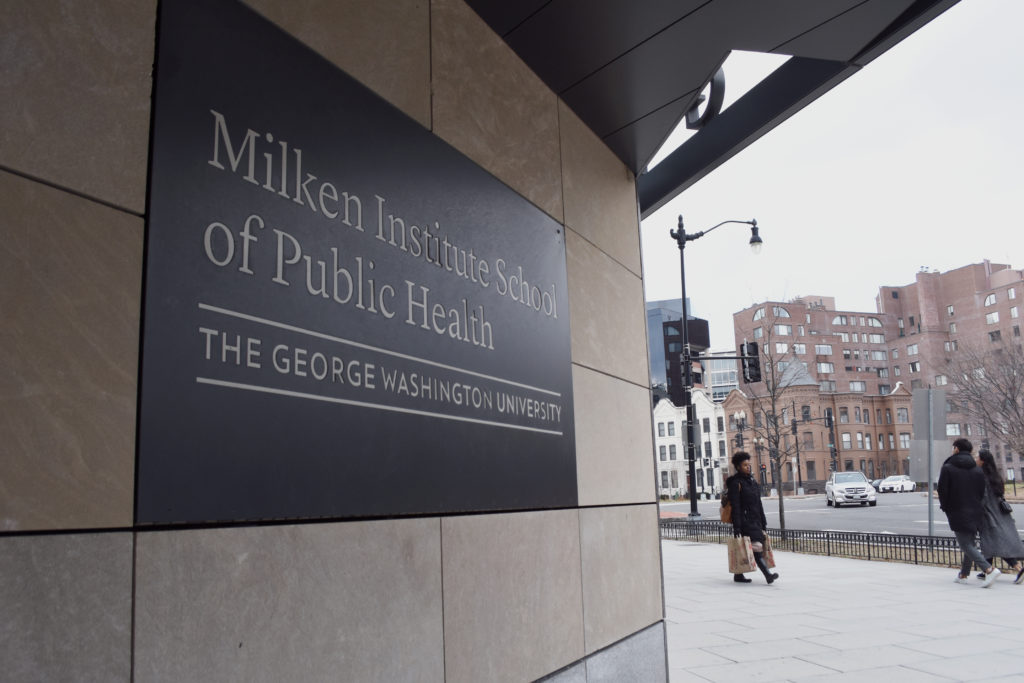The number of undergraduates majoring in public health doubled last year.
The jump is part of a broader upward trend in undergraduate public health majors, which have increased about 270 percent over the past five years, according to institutional data. Sara Wilensky, the assistant dean for undergraduate education at the Milken Institute School of Public Health, said the increase is the result of “intentional” efforts to reduce barriers to enter the major like lowering the GPA requirement from 3.0 to 2.75 and accepting freshmen into the major.
“We have been very deliberate about how quickly we are expanding our program to ensure that students continue to have an excellent experience as a public health major,” Wilensky said in an email.
She said officials want to ensure students’ needs are met as the major expands through programs like T.E.A.M. Milken, a program introduced earlier this semester designed to provide “individualized support” to the expanded undergraduate population.
“We also want to make sure we keep our strong reputation for providing personalized advising and access to our faculty as our enrollment grows,” Wilensky said.
Wilensky said officials have increased enrollment caps in public health courses by about five to 10 students and offer a section of “Introduction to Public Health” that is able to accommodate 70 students to meet the increased interest.
“The main positive is being able to provide more students with the public health education they seek at GW,” she said. “It pains us to turn away any student who wants to study public health.”
Public health experts said the rise matches increased demand for graduates trained in public health able to tackle current health issues in the workforce.
Susan Foster, a professor of international health at Boston University, said BU’s School of Public Health has ticked a similar increase in undergraduate enrollment over the past six years.
Foster said the growth in interest in the public health major may be the result of enrolling students who are more active in social and environmental activism and are interested in “reacting and engaging” with the world around them.
She said the visibility of public health crises around the country, like the lack of clean drinking water in Flint, Mich., and the opioid epidemic could push students to pursue a major with “real-world application” like public health.
“Public health is a ‘doing’ major – it’s not just a ‘let’s just study this and not do anything about it [major],’” Foster said. “You almost are called upon to really do something once you know what these problems are and how you can address them.”
Foster said BU officials have struggled to create new positions and fill them quickly to match the “dramatically” increasing public health enrollment at that school. She said administrators typically wait a few years to increase the resources available to rapidly growing departments to ensure the upward trajectory the department faces remains stable.
“I don’t think this is a temporary thing – I think this shift is going to last a while,” Foster said. “We have some major health challenges coming up.”
Susannah Anderson, an assistant professor of instruction at Temple University’s College of Public Health, said the increase in interest in the public health major might be the result of the major’s “practical” use in the workforce for a wide range of careers in health care.
“Public health students have a really great outlook a lot of times on their role as wanting to give back to the community and on social justice,” she said.
Anderson said that while the accommodations required to adjust to enrollment increases differ from school to school, departments will “ideally” grow and offer new electives and course sections as the student population grows.
“There are ways to make sure that the level of attention given to the students doesn’t suffer,” she said.
Wafeeza Hussein contributed reporting.








